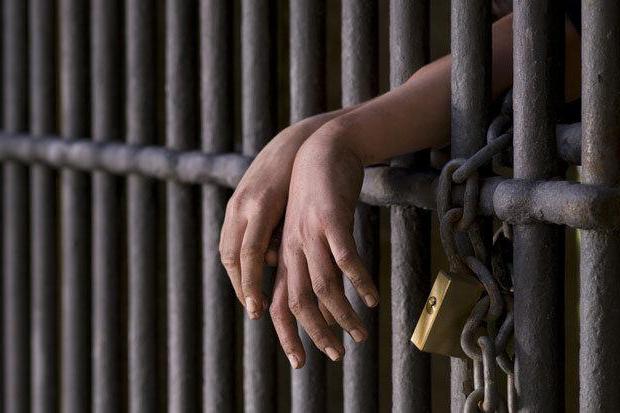The legal capacity of minors and minors is significantly limited compared with the legal capacity of an adult. What is the reason for this? What framework does the law erect for persons under the age of 18, and can this framework be removed? Answers to these and many other questions will be presented in our article.
The concept of civil legal capacity
From birth to death, a citizen has a number of legal and inalienable rights. This is enshrined in article 17 of the Russian Civil Code. The ability to possess rights and obligations is called legal capacity.
The availability of legal capacity states that a person may have certain rights, but some of them may not be immediately realized. Access to these benefits requires reaching the age of majority. At the same time, a person is able to refuse to implement a specific subjective right, but cannot liquidate his own legal capacity.
In Russia, all citizens are equal, and therefore everyone has the same legal capacity. No person may be limited in property or personal non-property rights. However, the restriction of their use is associated with the concept of legal capacity of minors and minors.
The concept of legal capacity
According to Article 21 of the Civil Code of the Russian Federation, civil capacity refers to a person’s ability to acquire and exercise certain rights and obligations. This concept, in contrast to legal capacity, may have a different size. Everything will depend on the person’s age or state of health. At the same time, both concepts presented are included in the category of legal personality.
All Russian citizens have different capacities. Minors and minors, for example, are considered legally incompetent, as well as partially or partially legally incompetent. All other citizens have the opportunity to fully exercise their rights.
As well as the ability to possess rights, the ability to exercise them cannot be eliminated. However, the restriction of the category in question is possible - but not otherwise than in the manner prescribed by law.
Differences between minors and minors
The concept of "juvenile face" is not given a clear definition in the law. Lawyers, guided by article 28 of the Russian Civil Code, talk about the age range from 6 to 14 years.
According to article 60 of the Russian Constitution, a citizen gets the opportunity to fulfill his duties and rights in full only after reaching the age of majority. This age occurs in Russia at 18 years old.
Thus, the law establishes a clear gradation: the minor age lasts from 6 to 14 years, and the minor - from 14 to 18 years. It is from the presented age intervals that the civil legal capacity depends. Under the law, minors are considered partially competent, as are minors. However, the scope of authority of both age groups varies slightly.
Minors
Article 28 of the Russian Civil Code reveals the legal capacity of minors. It is customary to consider such persons to be partially competent, that is, those having the ability to use a whole range of civil rights. However, some rights can still be exercised - but with the consent of the parents or guardians.
Small household transactions are part of the basic powers of minors. This means that children can purchase goods that do not require contracts for the sale. As a rule, these are products in stores and small services.
The civil legal capacity of minors involves transactions that are aimed at gratuitous benefits. Moreover, such transactions should not be registered or notarized. This is in this case a donation procedure.
Finally, minors can freely dispose of the funds that were provided to them by legal representatives - trustees or parents. A third party may also give certain funds to minors, but only with the consent of the parents.
A feature of the civil personality of minors is the full property liability of parents or guardians for their children. At the same time, it is necessary to prove that the obligation was violated not through the fault of the representatives of the child.
Minors
Persons from 14 to 18 years old are able to independently make certain types of transactions. However, this requires written consent of the parents or legal representatives. This is stated in article 26 of the Russian Civil Code.
Parents can cancel the transaction concluded by their minor child. Cancellation takes place in a judicial proceeding in the presence of all necessary evidence. This rule is enshrined in article 175 of the Civil Code.
The legal capacity of minors aged 14 to 18 years allows you to implement the following types of transactions:
- implementation of small household operations;
- making deposits in credit institutions, as well as managing deposits;
- realization of copyright in literary, scientific or other cultural works;
- making transactions with own earnings, scholarships and other income.
Thus, the legal capacity of minors and minors has a fairly broad framework. Citizens under 18 years of age have voluminous powers in a wide variety of fields.
Limitation
The status of a minor is close to the legal status of a citizen limited in his legal capacity. Article 30 of the Russian Civil Code describes the procedure for restricting the legal capacity of persons.
The main reason for the trial, which will result in a limitation of legal capacity, are a number of socially negative factors. So, it is worth highlighting the addiction to alcohol or drugs, the difficult financial situation in the family, the violent nature of a citizen and much more. All these points can entail the establishment of guardianship over a person.
State guardianship
The trustee for an incapacitated person shall be established by state authority. He monitors the condition of the ward, controls the level of his income, acts as his representative in the courts.
It must be said that the procedure for restricting legal capacity is not often implemented today. In most cases, it is associated with the incapacity of minors. A person may suffer deviations from mental development. Because of this, at 18, he will not get the full opportunity to exercise his rights. The status of his legal capacity will be limited.
Incapacitation
Mental disorder can be different. Depending on how much the human psyche suffers, the court decision will also depend. The court may deprive or limit a person of legal capacity. The restriction is associated with mild or short-term forms of the disease, and deprivation is associated with serious, sometimes even progressive, disorders.
Most often, a person is deprived of legal capacity to reach adulthood.Rather, his legal status remains the same - the same as for minors and minors. Civil capacity does not disappear completely. However, the court makes a decision specifically on depriving a citizen of the opportunity to exercise part of his rights. In order for a court to make a relevant decision, a forensic psychiatric examination is necessary.
The concept of emancipation
Is a person under the age of 18 capable of prematurely acquiring the full scope of civil rights and the possibility of their realization? Article 27 of the Civil Code of the Russian Federation states that such an opportunity exists, but only if certain conditions exist. First, a citizen must be 16 years old or more. Secondly, he must be officially employed or registered as an individual entrepreneur. However, these two conditions are often not enough to acquire the opportunity to exercise the rights of minors.
The concept of legal capacity includes a large number of elements: it is worth highlighting the conclusion of a civil marriage, driving, registration on military records, and much more. For the realization of all these powers, emancipation is necessary - the procedure for early receipt of full legal capacity. Such a procedure is allowed only with the consent of the parents of the teenager. At the same time, emancipation is not fully related to the tort of a person - the obligation to bear responsibility for certain actions.
The concept of tort
This term refers to the ability of a citizen to be responsible for actions that violate the norms of the law. Tort ability, along with legal capacity and legal capacity, is included in the concept of legal personality.
The degree of tort is closely related to the social maturity of the individual, his mental and physiological capabilities. That is why in the Russian Civil Code the degree of tort for each age group is different. How is the concept presented related to the legal capacity and legal capacity of minors and minors? Here is the classification fixed in the law:
- from the age of 14, citizens are criminally responsible for the most serious crimes (group murder, terrorism, etc.);
- from 16 years of age, liability is established for ordinary crimes (robbery, rape, etc.), as well as for offenses (administrative sphere of law);
- from the age of 18, responsibility for a crime in the military sphere is established.
A separate type of responsibility is associated with the world of work. Since a citizen can work from the age of 14, he also bears disciplinary responsibility from this age.
As already mentioned, emancipation does not affect tort in any way. A person can acquire a number of important rights, but responsibility for these rights will come only after reaching a certain age.
Guardianship and trusteeship
Considering the concept of legal capacity of minors and minors, one cannot but pay attention to the categories of guardianship and guardianship. According to article 32 of the Civil Code of the Russian Federation, custody is established over minors, as well as over citizens who, by a court decision, are recognized as legally incompetent due to the presence of a mental disorder. All necessary transactions are implemented on behalf of the guardians.
Trustees are called upon to take care of minors - that is, citizens between the ages of 14 and 18. They are obliged to assist their wards in the implementation of duties and rights.
Property of minors
The Civil Code of the Russian Federation regulates property and personal non-property relations. Almost all norms are related to these relationships. The topic of legal capacity of minors and minors is no exception.
Article 37 of the Civil Code of the Russian Federation describes the property of a ward.Trustees or guardians must manage the income of their child, with the exception of those income that the child can manage independently. The legal representatives of a minor may use the property of their ward on trust. In case of removal of the child’s representatives from their duties, trust conditions are concluded with the guardianship authority.
What are trust conditions? This is the storage of movable or immovable property of special value. Property management requires special consent from guardianship authorities.